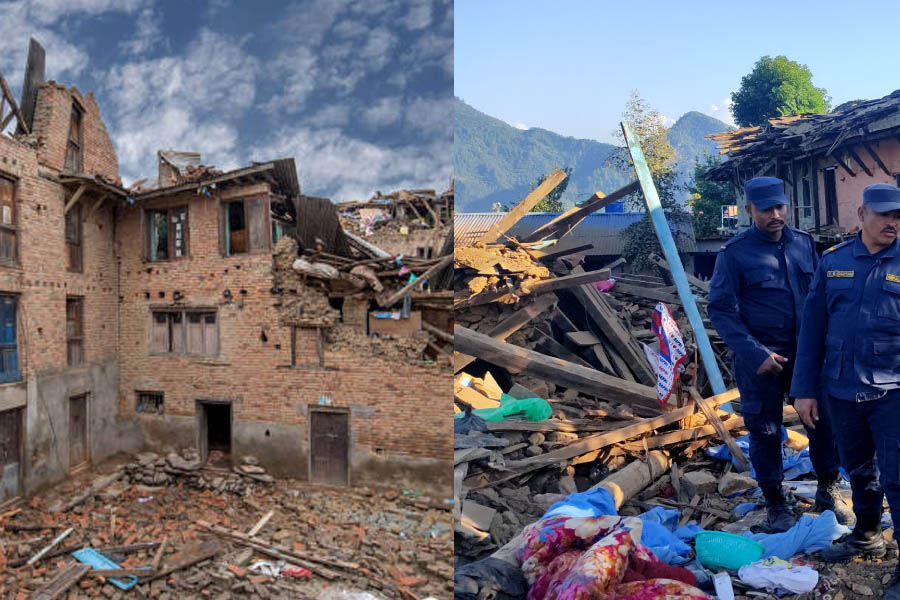
In the aftermath of the devastating earthquakes that struck Jajarkot, the plight of the victims has taken a dire turn as two more individuals lost their lives to the harsh cold. With a total of 10 fatalities attributed to the extreme weather conditions, the vulnerable earthquake survivors are facing an uphill battle for survival. The lack of adequate shelter, warm clothing, and medical assistance has left many exposed to the elements, leading to a surge in illnesses and, tragically, deaths.
Rising Toll: Ramasilam Giri and Dhankumari Khatri
The recent deaths of 53-year-old Ramasilam Giri from Motai Village and 28-year-old Dhankumari Khatri from Nalgad Municipality have heightened concerns about the welfare of earthquake victims. Giri, who suffered from asthma, lived with his family of seven under a single tarpaulin, unable to withstand the freezing temperatures. Similarly, Khatri, grappling with heart disease and rheumatism, succumbed to the bitter cold, adding to the growing tally of casualties.
Health Crisis in Tent Communities
The dire conditions in the makeshift tent communities have led to widespread health issues, with residents falling ill due to the unforgiving weather. According to Shivraj Giri, the ward president of Kushe-9, "Because of the cold, some people are sick in all the tents, making it difficult to save the chronically ill and senior citizens." The lack of proper shelter and warmth exacerbates the vulnerability of those already grappling with chronic illnesses.
Struggles in Nalgad Municipality
Nalgad Municipality, one of the worst-hit areas, is grappling with a surge in patients suffering from diarrhea, fever, cough, heart disease, and asthma. Dr. Vishal Upreti from Nalgad Nagar Hospital highlighted that 100 to 150 patients are seeking treatment daily. The mayor, Dambar Bahadur Rawat, acknowledged the inadequacy of relief efforts, stating, "Until now, we have only been able to provide one tarpaulin and a blanket for one family, and the health problem is increasing as it cannot filter the dew that leaks throughout the night."
Government Response and Challenges
The government's delayed and insufficient response to the crisis has exacerbated the suffering of earthquake survivors. With 35,000 families still without proper housing, the government's inability to provide adequate relief and support is glaring. Mayor Rawat stressed the urgency of distributing relief quickly and mobilizing manpower for rehabilitation, highlighting the immediate need for a more effective response.
Mental Health Crisis Looms
Beyond the physical challenges, the earthquakes have left a lasting impact on the mental well-being of survivors. The fear, trauma, and loss have given rise to post-traumatic stress disorder (PTSD), depression, and anxiety among the affected population. Unfortunately, mental health concerns have taken a back seat in the overall disaster response.
Urgent Call for Mental Health Support
As the focus remains on physical injuries, there is a critical need for mental health support for earthquake survivors. The symptoms of depression, anxiety, and PTSD are on the rise, emphasizing the importance of addressing the psychological toll of the disaster. The Nepalese government and healthcare professionals must prioritize mental health treatment and support, utilizing psychological methods like behavior therapy and cognitive behavior therapy.
The recent deaths of earthquake victims in Jajarkot due to cold exposure underscore the urgent need for a comprehensive and swift response from the government and aid organizations. Beyond immediate relief, attention must be directed towards long-term rehabilitation efforts and mental health support. The resilience of the affected communities will depend on a coordinated and sustained effort to address both the physical and mental health challenges they face in the wake of this devastating natural disaster.